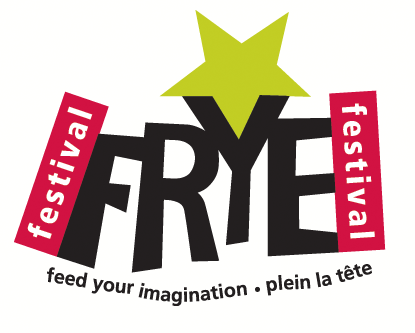httpv://www.youtube.com/watch?v=un26BBFQ5_M
Russell Perkin has already posted on Graham Greene and Frye and evidently will be doing so again soon with something on “Shakespeare, Greene and ideology.” This seems like a good time, therefore, to feature a movie written by Greene, enjoyed by Frye, and now of course regarded as a classic in its own right: The Third Man.
In his diary entry for April 26, 1950, Frye records having seen the movie with Helen the night before and describes it as “very good’:
The musical accompaniment — a zither playing the same series of chords over & over — was very effective, & the whole atmosphere of post-war Vienna, its spirit broken by occupation & its poverty grinding everyone down to a squalid sort of mutual prostitution, was horribly convincing. The villain, done by Orson Welles himself, was the type Hollywood movies generally idealize — a cheerful, handsome, appealing boy who was a complete psychopath, & the curiously empty & helpless horror that such a character inspires came through in a magnificent scene — the only one where he said anything — on a Ferris wheel with the American hero [Joseph Cotten], whose inept honesty made just the right foil. The ferocity of the heroine’s devotion [Alida Valli] to the man whom she knew had betrayed her tied up what was really a pretty grim story, for all the melodramatic chase-through-the-sewers that made it more reassuring for the young women behind us.
It’s funny now that Frye turns his nose up at the “melodramatic chase-through-the-sewers.” At the very least it proves that he did not reflexively fall into archetype spotting simply because it might niftily prove a point. Every Frygian since would recognize the sequence as a nicely framed descent into the underworld, and all no doubt sooner or later comment on it. Furthermore, this particular “melodramatic chase” is artful and modest compared to the Wagnerian tumescence of the formula as it is rendered these days. Over Christmas I went with my neighbors and their kids to see Avatar. For the first 90 minutes I was enchanted by it — in terms of cinematic art and technology, it is undeniably a watershed — and I considered posting on it in the context of Frye’s observations about how comprehensive an art form the movies actually are. But, oh my, then the formula kicked in (this is a James Cameron movie after all, the director who included a chase scene on the sinking Titanic in which gunshots are fired), and all of the care and ingenuity that went into creating the world of Pandora in 3D sickeningly descended for almost a full hour into a futuristic hightech blood letting. It was like falling out of love and waking up cold and hungover all at once. I joked to my friends afterwards, if only Cameron believed in the movie he’d been making up to that point. If every life is precious (as Avatar unrelentingly insists), then why was so much of it so readily expendable?
In any event, The Third Man is literarily grounded popular film making at its best: smart with a sharp tongue and a sound ear and at least a couple of unexpected moments of cinematic genius.

